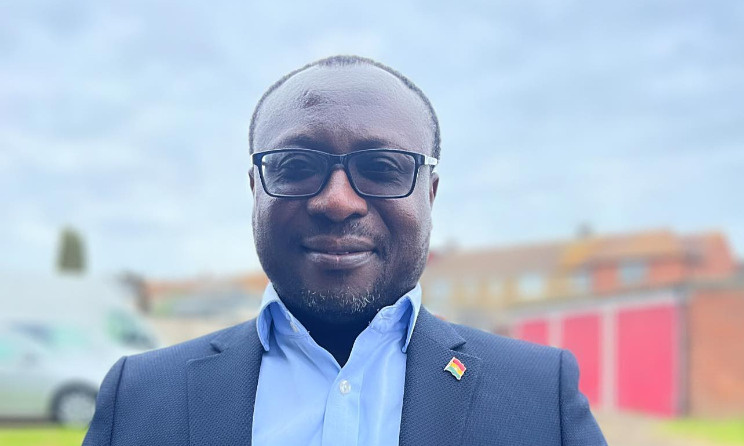Ghana: Supreme Court prohibits celebrity alcohol endorsements
Ghana’s Supreme Court, in a 5-2 decision, has upheld a Food and Drugs Authority (FDA) ban on celebrities endorsing alcohol, ruling that the directive aligns with the Constitution.
 Ghanaian music executive Mark Darlington Osae believes that the FDA directive is discriminatory and unconstitutional.
Ghanaian music executive Mark Darlington Osae believes that the FDA directive is discriminatory and unconstitutional.
The ruling, as stated by Chief Justice Gertrude Torkornoo, reinforces the FDA’s position against public figures promoting alcohol and is in line with the regulatory body’s January 2018 directive restricting advertisements of such products to between 8pm and 6am. This will be applicable across all media, advertisers, manufacturers and importers.
In November 2023, the Supreme Court commenced hearing the case against the FDA directive, which was brought to the court by music executive Mark Darlington Osae. Osae, who is the founder and CEO of Black Kulcha Music and the chairperson of the Ghana Music Alliance pressure group, argued that FDA Guideline 3.2.10 breached the Constitution’s provisions. He sought a declaration that the guideline is discriminatory and unconstitutional, urging the court to nullify it and issue a permanent injunction against restricting celebrities from endorsing alcoholic products. The court action garnered significant backing from the creative sector.
“We are obviously disappointed at the Supreme Court’s ruling in relation to the case against the FDA,” Osae said in response to the verdict. “I am however happy we took that decision. I’m also happy that it generated a wider conversation in relation to people in the creative space, having a voice to speak out when directives, laws and regulations are punitive to them.
“We still do believe that it is discriminatory, although the Supreme Court did not agree fully. If it were a total ban of everyone not being allowed to advertise alcohol, that would be a different conversation we’d be having today, but to select a group of people where we haven’t got proper empirical data to back the reasoning behind the ban.”
Supporters of the FDA’s directive says celebrity endorsements of alcohol increase consumption, particularly among young people, and undermine efforts to promote responsible drinking. They believe that limiting celebrity endorsements is crucial for reducing alcohol abuse.
Following Wednesday’s ruling, FDA director of legal and corporate affairs Joseph Bennie told the media that the directive was made in the interest of public health and safety.
“We have nothing against anybody, nothing against any celebrity, nothing against any well-known personality,” he said. “It is just in the interest of public assessment. We have a large population of youth who look up to these celebrities and well-known personalities … We know what alcohol can do to health, and it is our prayer that all of us agree to protect this large population we have.”
Bennie added that the FDA was not depriving celebrities of income, as they could advertise other products like food, soft drinks and pharmaceuticals, adding that the FDA will “continue to collaborate with our stakeholders, including celebrities and well-known personalities to ensure that the space is cleared … It’s good the Supreme Court has pronounced on this, so that it will guide all of us in our operations.”
However, for creative consultant and event producer George Quaye “laws must be implemented without harming livelihoods. Everyone in Ghana deserves the opportunity to work.” He appealed for a “middle ground”, saying that “there should be a constructive approach to engage celebrities with brands and promote responsible choices.”
Speaking to Music In Africa in November 2023, Heritage Brewing Company trade marketing executive James Tetteh said that selecting celebrities for brand endorsements was a deliberate process. “It is not a random decision but a thoughtful one that considers the brand’s positioning, target audience and alignment with data, demographics and scientific insights,” he said
For Osae, the fight is not over yet. “The conversation should still go on and I still believe that the FDA needs to keep the conversation lines open with celebrities so that we can have a civil discourse on how best we can work together to protect the public,” he said.



























Commentaires
s'identifier or register to post comments